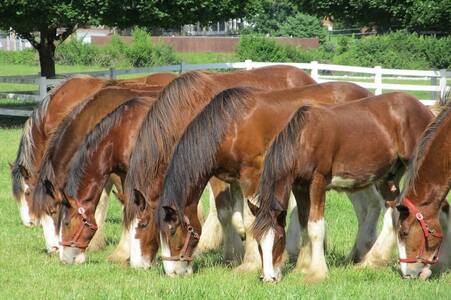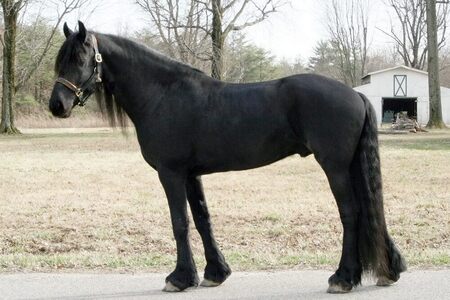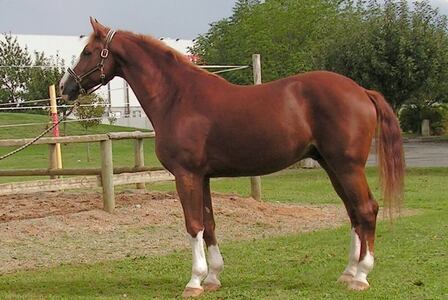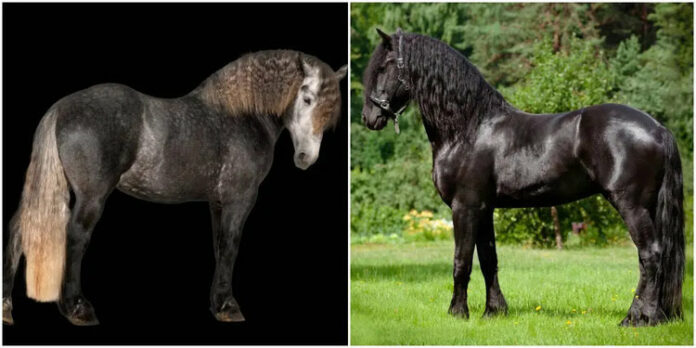Horses with larger cannon bones can carry greater weight.
How a horse carries weight on its back is heavily influenced by balance. Regardless of your weight, the horse carrying you will find it much simpler if you are a balanced and coordinated rider.
Four best horse breeds for larger riders.
1.Clydesdale

The Clydesale as we know it today stands around 16 to 18 hands, and is a heavy breed, though they have active gaits and energetic movements.
Clydesdales are most often bay or black, and usually have white markings on the legs and face, with heavy feathering on the legs.
Originally used for haulage and agriculture, Clydesdales are still used for driving, logging and parades, as well as for general riding purposes.
2.Friesian

The Friesian is regarded as a light draft horse, though of days they are used more for riding than for pulling. The breed averages 15.3, but can be as tall as 17.2 hands.
They are incredibly beautiful horses with a “Baroque” body type that is hefty while yet being elegant and sophisticated.
Despite some having the chestnut gene, they are usually always black, with the occasional white star or foot.
A further benefit of the Friesian is their temperament, which is especially gentle and placid and makes them appropriate for larger learners.
3.Percheron

Similar to the Morgan, the Percheron is a versatile draft horse. In the past, this breed was frequently utilized for both pulling in the fields and in battle. Percherons are wise and serene, making them ideal for beginning riders.
4.Westphalian

A warm-blooded horse from Western Germany is called a Westphalian. The initial stallions that contributed to the breed were comparable to the Trakehners of the day; they were big-boned, cavalry-ready horses with massive frames. Although less coarse than “cold blooded” horses, they are robust animals that stand between 15.2 and 17.2 hands tall.
They are typically employed for leisure riding, dressage, and show jumping. They are typically black, bay, chestnut, and gray.
They are strong and capable of holding their own against a rider who weighs more.


